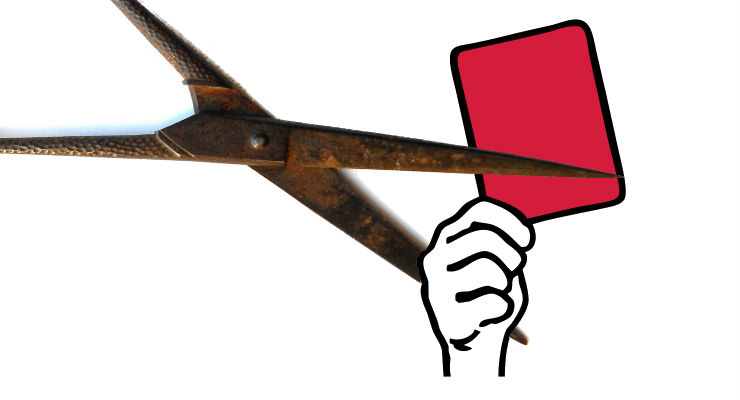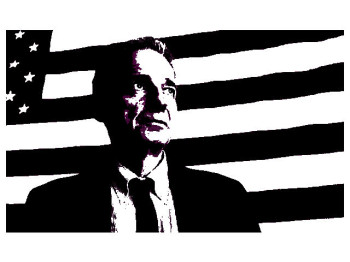 Let’s imagine for a moment that Edward Snowden had gone through the proper channels of the government in his effort to expose the illegalities of the American government. How would this have played out? We consistently here from National Security experts or legal experts such as Jeff Toobin that if Snowden had just gone through the proper channels to release NSA documents, the American justice system would have acted as the proverbial guardians of true democracy. Could we possibly know if this is true? From what the American people see, there aren’t very many cases that help to validate this claim or debunk it; thus, merely shedding a very limited light on two sides of the argument.
Let’s imagine for a moment that Edward Snowden had gone through the proper channels of the government in his effort to expose the illegalities of the American government. How would this have played out? We consistently here from National Security experts or legal experts such as Jeff Toobin that if Snowden had just gone through the proper channels to release NSA documents, the American justice system would have acted as the proverbial guardians of true democracy. Could we possibly know if this is true? From what the American people see, there aren’t very many cases that help to validate this claim or debunk it; thus, merely shedding a very limited light on two sides of the argument.

In fact, quite surprisingly the conventional wisdom is in stark contrast with reality. Let’s take the most recent case of whistleblower Jeffrey Scudder who worked in the CIA’s historical collections division. This division of the Central Intelligence Agency is specifically constructed to sift through old documents that can be safely released to the American people.
According to Greg Miller’s article published yesterday in the Washington Post, Scudder discovered thousands of documents he thought should be released, and worked assiduously through the proper channels to ensure that this would be done to the rule of law. Unfortunately, as other influential people have similarly scrutinized, Scudder was stonewalled consistently.
Scudder took a further step toward his incandescent commitment to inform the American people of highly pertinent information: he filed two requests under the Freedom of Information Act- hardly a rogue move. Scudder’s requests fell into two categories: One, ”sought to obtain new digital copies of articles already slated for release, and another aimed at articles yet to be cleared.”
Six months after Scudder’s request, he was rewarded for his courage and patriotic intentions by being ”summoned into a meeting with the Counterintelligence Center, was put on administrative leave, was instructed not to travel overseas, and questioned by the FBI.” Further, Scudder had every computer in his home seized by the FBI (including his daughter’s). The CIA has refused to comment on the subject. While one should not jump toward any pre-conceived conclusions, we must take a look at additional prior cases that may illuminate what going through the proper channels actually entails.
History shows need to strengthen whistleblowers
Thomas Drake, a former senior executive of the NSA and decorated Air Force and Navy veteran, also exposed NSA secret surveillance programs (namely the Trailblazer program’s waste, fraud, and privacy abuse which was suppose to create the foundation for the modern restructuring of gathering intelligence for the NSA) as early as 2005. Drake stated in an interview that ”Everything I passed on to Congress just went into a black hole.” Drake, along with fellow whistleblowers, went to Congress and was briefed by Sen. Ron Wyden and Sen. Mark Udall. Here is the ever more important point, however: Many Senators and members of Congress don’t have the security clearance and would not have been able to see such information. In addition, many Senators and members of Congress are either indifferent because they are obliquely affected, or satisfied with the modus operandi of American politics- more specifically, the revolving door of private security contractors in conjunction with political positions.
Drake and his fellow whistleblowers made complaints to the DOD’s inspector general. Did the proper channels maintain the accountability standard we envisaged? The inspector general ”gave up the names of the whistleblowers (Thomas Drake, William Binney, Ed Loomis, and Kirk Wiebe).” According to William Binney, ”We tried to stay for the better part of seven years inside the government trying to get the government to recognize the unconstitutional and illegal activity. And that just failed totally because no one in Congress or -we couldn’t get anybody in the courts, and certainly the DOJ and Inspector General’s Office paid no attention to it.” As a result, the four whistleblowers endured years of legal harassment, and their concerns stonewalled and belittled by the government.
There are two main points to dissect from this: One, without these cases, or similar cases brought to light in the whistleblowing debate, how can the American public surmise an adequate assessment of legal whistleblowing that many in the government/ political establishment purport ad nauseam? Two, and the more broad point to take away from this, is the justification of illegal whistleblowing; which, in lieu of history, is a highly oxymoronic phrase. Albeit so, we must also begin to accept whistleblowing as a prime conduit for raw investigative journalism. Is there a fine line to whistleblowing on classified material? Yes. Yet, when whistleblowing exposes clear illegalities that is carefully disseminated to assure the information won’t bring further/immediate harm to American citizens and troops, nor is intentionally being used to aid an enemy state, and is unbeknownst to the American people, there is zero justification for defaming and jailing those whistleblowers.
Dr. K says
Very poignant, on the mark and thorough in scope.